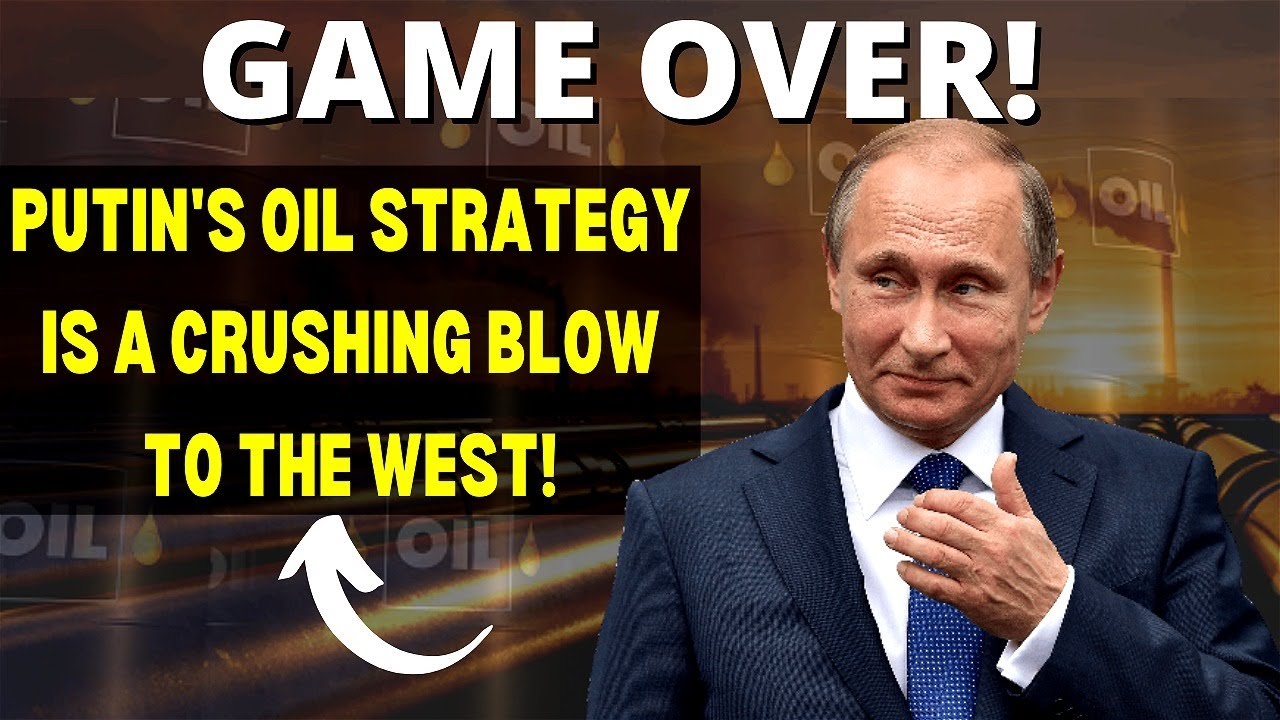
How Russia And China Are DESTROYING Western Sanctions And Their Plan To DOMINATE The Oil Markets
Keep up to Date & Bypass the Big Tech Censorship
Get uncensored news and updates, subscribe to our daily FREE newsletter!
Russia and China are expected to significantly impact the global oil market in 2023. Russia is now using a “shadow fleet” of tankers to export oil, which allows them to evade sanctions and increase exports.
Meanwhile, China’s economy is recovering after COVID lockdowns, leading to a predicted increase in oil demand. As a result, these two countries will likely dominate the oil market in 2023.
It will be important to keep an eye on their actions in the coming year to see how they will impact the industry. And with these developments, Russia and China are set to be major players in the oil market.
| Recommended Books [ see all ] | ||||
|---|---|---|---|---|
 |  |  |  |
 |
Russia has faced a dilemma since European countries banned most of its oil imports last year.
Europe was previously the largest oil sales customer, giving Moscow its wealth, even bigger than Russia’s domestic market.
But now, Russia needs to find new customers to continue selling oil.
However, Russia can’t pipe its oil to those places as it did to Europe, and its own tanker fleet can’t carry it all.
It needs more ships, but the United States and its allies have imposed restrictions to prevent tankers and shipping services from transporting Russian oil unless sold at or under $60 per barrel.
So now, Russia is turning to a “shadow fleet” of 200 to 300 ships in order to avoid these restrictions.
These ships are typically owned by offshore companies in countries with more lenient shipping rules, such as Panama, Liberia, and the Marshall Islands.
This allows the owners of these ships to make significant profits while limiting their exposure to U.S. or EU governments or banks.
A shadow fleet is a common practice in the oil industry. And it has long been used by countries like Iran and Venezuela to avoid Western oil sanctions.
Russia is following the same example and copying what the Iranians and the Venezuelans did. But the main difference is that Russia is the world’s top oil exporter.
The owners of these shadow fleet tankers have limited exposure to U.S. or EU governments or banks, making it difficult for enforcement agencies to track them.
Moreover, the risk-reward ratio for these owners is favorable as they can make significant profits for each voyage.
For example, if a vessel holds a million barrels of oil and the owner can make $10 or $20 per barrel spread, the profit can be $5 to $10 million per voyage.
Basil Karatzas, CEO of New York-based Karatzas Marine Advisors, a shipping finance advisory firm, points out that these vessels can change their name and ownership while in transit.
Now, this makes it very hard to track them. And even if they get caught, they can claim they were unaware of the illegal cargo.
Furthermore, they can secretly move oil through ship-to-ship transfers in the ocean, making it even harder to track them.
A Russian newspaper claims that Russia’s oil production has been resilient despite Western sanctions and price caps.
In fact, production increased by 0.1% to around 10.9 million barrels per day compared to December 2022, from January 1 to 9.
Exports also rose by 1.2% to 634,400 bpd and refining volumes increased by 1.4% to 808,400 bpd.
However, it also said that production is expected to decrease by 5-7% due to price caps on Russia’s crude and refined products in early 2023.
The energy ministry is also working on additional measures to limit discounts on Russian oil prices versus international benchmarks.
JANUARY 2023 OIL MARKET REPORT
As for its neighbor in the south, there is a lot of doubt about China’s future in 2023 after the turbulent close of a remarkable and challenging year.
But it seems like there may be hope for it after all, as the pandemic may be nearing its end.
You see, the anarchy President Xi Jinping’s hasty and unplanned departure from zero-Covid sparked has continued into the new year.
And significant portions of the country are currently threatened by a newly unseen Covid wave. However, many people might find encouragement in the unexpected reopening.
The oppressive Covid limitations and self-imposed global isolation that China has endured over the past three years may be abolished soon.
And the country plans join the rest of the globe in adapting to the virus.
However, China is still well behind the rest of the globe due to Beijing’s Covid limitations.
And the three years of border restrictions and supply chain disruptions have impacted international commerce and investment between China and other nations.


